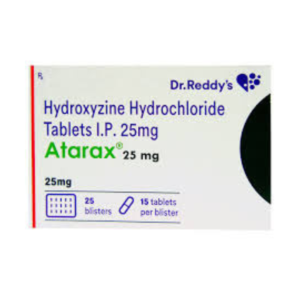ALTHROCIN 250MG TABS
₹67.90
-
Active Ingredient: Azithromycin (250 mg per tablet)
-
Used for: Treating bacterial infections such as respiratory tract infections, skin infections, ear infections, and certain sexually transmitted infections (e.g., chlamydia).
-
How it works: Azithromycin works by inhibiting the growth of bacteria, thereby stopping their ability to multiply and spread. It does this by binding to bacterial ribosomes, which interferes with their protein synthesis.
Description
Althrocin 250 mg Tablet is primarily used for treating a wide variety of bacterial infections. As a macrolide antibiotic, it is effective against both gram-positive and gram-negative bacteria.
-
Common Uses:
-
Respiratory infections (e.g., pneumonia, bronchitis)
-
Ear infections (otitis media)
-
Skin infections (e.g., impetigo, cellulitis)
-
Sexually transmitted diseases (e.g., chlamydia, gonorrhea)
-
Throat infections (e.g., pharyngitis, tonsillitis)
-
-
Dosage: Typically, the dosage for adults is one tablet (250 mg) once daily, but this can vary based on the type and severity of the infection. The duration of the treatment generally lasts from 3 to 5 days.
-
For certain infections like chlamydia, a single dose of 1 gram (1000 mg) may be prescribed, which is typically divided into 4 tablets of 250 mg each.
-
-
Administration: The tablet should be taken with or without food, but it’s advisable to take it at the same time each day to help you remember. It is important to complete the entire course of treatment even if symptoms improve before finishing the prescribed amount.
Common Side Effects:
-
Gastrointestinal Issues: Nausea, vomiting, diarrhea, or stomach pain
-
Headache or dizziness
-
Rash or allergic reactions in some cases
-
Liver function changes (rare, but should be monitored)
Precautions:
-
Allergies: If you have a history of allergy to macrolide antibiotics (like erythromycin), you should not take Althrocin.
-
Liver Problems: If you have liver disease, your doctor may adjust the dose, as Azithromycin is metabolized in the liver.
-
Drug Interactions: Azithromycin can interact with other medications like antacids, anticoagulants, and certain heart medications. Always inform your doctor about any other medications you are taking.
-
Pregnancy and Breastfeeding: Azithromycin is considered safe during pregnancy and breastfeeding, but you should consult your healthcare provider to be sure.








Reviews
There are no reviews yet.